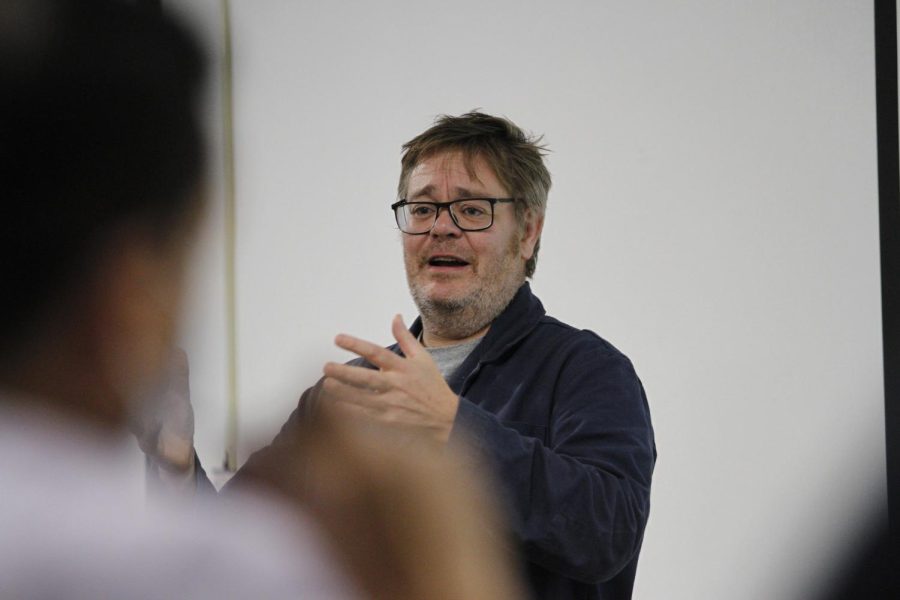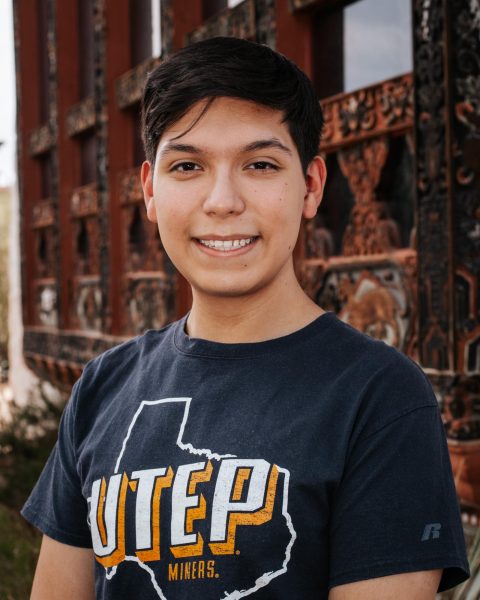Benjamin T. Smith Ph.D., journalist turned author, gave the UTEP community a glance at his work as a historian who studies modern Mexico and the country’s drug trade Oct. 20. His presentation was sponsored by UTEP’s Department of Sociology and Anthropology, the Department of Chicano Studies and the Department of Inter-American Border Studies.
The lecture showed the audience details from his book, “The Dope: The Real History of the Mexican Drug Trade,” which consists of firsthand accounts and other stories regarding one of the world’s most notorious industries.
Beginning at 6 p.m. in the Bloomberg Auditorium in UTEP’s Library basement, Smith was introduced by Howard Campbell Ph.D., the chairman of UTEP’s Department of Sociology and Anthropology.
“So, the book is a very important book, it’s probably the most comprehensive study today about the Mexican drug trade,” Campbell said. “There are other books, many other books, and they all have maybe various merits, but this is probably the one that, as I say, is the most inclusive, that goes to the beginnings of the drug trade in Mexico and up to the present.”
After his introduction, Smith went on to talk about Mexico’s past and present, including how his interest in the Mexican drug trade began. Marrying into a Oaxacan family, Smith was intrigued by Mexican culture and more, which led him to travel.
While he was in love with the Mexico of the late ‘90s and early 2000s, Smith felt the need to put the true story of the drug trade to everyone, including some people whose only sources are the television series on Netflix.
“I married into a very large Oaxacan family, fell in love with Mexico and fell in love, particularly with the kind of more indigenous south of Mexico,” Smith said. “However, over the last kind of, you know, ten, 20 years or so, it’s been very difficult to ignore, that the Mexico that I came into has changed radically, not all for the best, and I ended up kind of studying how it has changed and altered, I suppose.”
From the Mexican side of the drug trade to the American side, Smith explained how there are faults with both. The auditorium was filled with people looking and listening with focused faces, maybe learning new things, or remembering old stories.
The presentation was complete with the stories of villages and farmers who went from cultivating vegetable crops, to farming opium poppies and marijuana. Smith continued to inform the audience of his journey in writing the book, as well as the encounters others had with their journeys of exploring the Mexican drug trade.
“Because drug traffickers don’t leave memoirs, it’s quite difficult to interview them, and the police and the media kind of demonize a lot of the drug traffickers and make them into just kind of caricatures,” Smith said. “It was quite a difficult process of finding sources which did tell somewhere near the truth. So yeah, that was probably the toughest part.”
The night ended with questions from audience members, and more statements from Smith and Campbell. Currently, Smith is on a book tour, and has visited other cities in the UK and the U.S., talking about his book.
Elisha Nunez is a reporter and may be reached at [email protected].













